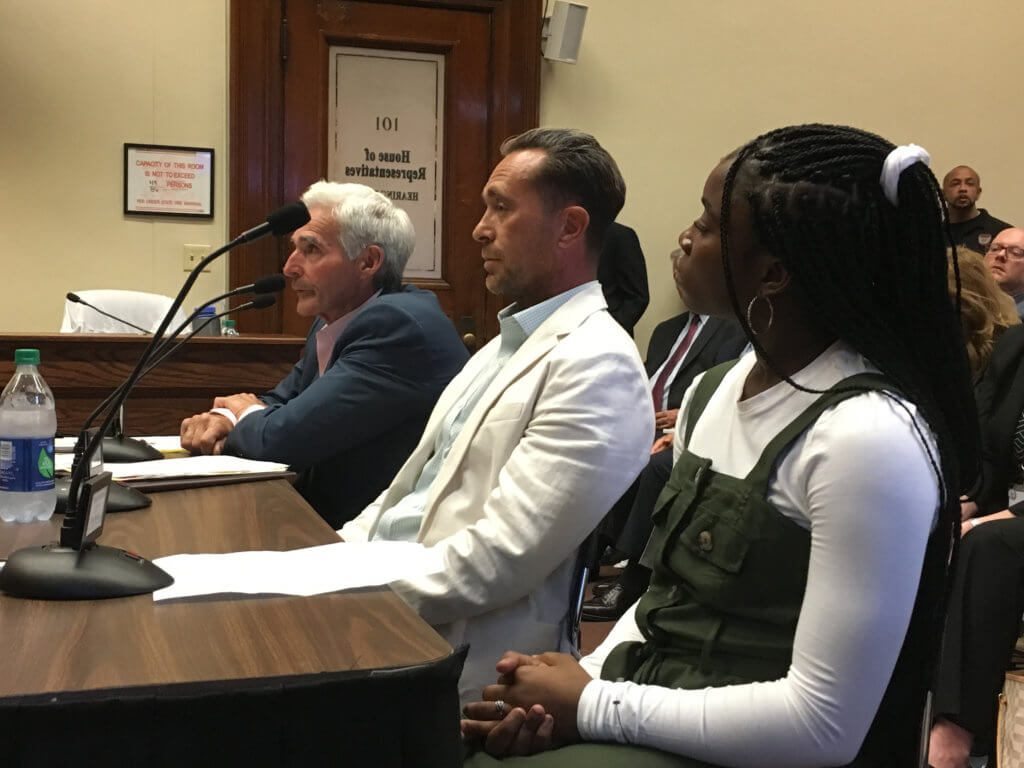Special Series
Living In Limbo
Foster Families and Their Stories
“I felt like I was kidnapped. Like someone just picked me up from school, and brought me to a random stranger’s house and I had no idea what was going on.”
That’s how Tanya Townsend describes the experience of being placed in foster care when she was ten years old . It’s an experience shared by many of the 270,000 kids who are placed in foster care every year in the U.S.
But too often, their voices are left out of conversations about the future of child welfare. This series brings into focus the youth and families living in the foster care system.
Featured Stories
Mary was almost 60 and planning her retirement when she showed up at her sister’s house to find DCYF workers removing her great nieces and nephew from the home.
When Rhode Island’s Department of Children, Youth, and Families decides to remove kids from their home, caseworkers immediately start looking for family members or family friends who might take the kids. They’re called “kinship foster parents,” and they often have little or no time to prepare. As of last spring, two thirds of all kids in a foster home in Rhode Island were living with a kinship foster family, like Mary’s.
We continue our series with a look at how Mary and her four foster kids are learning to get through each day.
Kids in foster care are often coping with the aftermath of abuse or neglect, along with the added trauma of being removed from their home. They’re grappling with this past, while living in the shadow of an uncertain future.
For Mary and her four foster kids, many parts of their life together are getting easier with time. But the kids are still learning to make sense of the circumstances that brought this foster family together.
In 2019, a searing report from Rhode Island’s Child Advocate blamed the state’s Department of Children, Youth, and Families for failing to prevent the death of a 9-year-old in state care.
Many foster kids in Rhode Island are eventually reunited with their birth parents. But for some, that isn’t possible. For these kids, adoption is one way to leave foster care — and the uncertainty that comes with it — behind. Ally and Matt have been foster parents to Clara and her younger brother James for more than three years. We continue their family’s story as they prepare for adoption.
Amelia entered foster care when she was just starting high school. She lived in a group home, and moved through several foster homes. At 19, she’s now faced with living on her own for the first time.
About a hundred young people age out of foster care in Rhode Island every year. They’re on their own, without the family support that many young adults depend on.
In this audio diary, Amelia reflects on her first days in her own apartment.
Youth aging out of foster care enter adulthood without the family support that many young adults rely on.
Moving into her own apartment hasn’t been easy for Amelia. But in this audio diary, she shares how she is learning to get through each day.
Young people who aged out of state care over the last decade share snapshots of their experiences.
Connect with Living in Limbo Reporter Sofia Rudin


Investigate,
Understand,
Connect.

Tell Us Your Stories Of Foster Care
Your stories are vital to the reporting of this project. If you’ve been involved in foster care in any way – as a foster parent, birth parent, child in state care, child welfare worker, or outside observer – we want to hear from you.

“My issue is that there is no timeline… Will I be able to keep them once the rights have been terminated? Will I have my boys for the holidays?”

“It should have all ended with me. When I told DCYF I was being abused, they should have listened! They should have protected me and the others.”

“My husband and I have done everything we have been asked and more to get our children back, and still we don’t have our children. We are still fighting and not sure what else needs to be done.”
Foster Care Resources In Rhode Island
More Reporting On Rhode Island's Foster Care System
The Public’s Radio takes pride in serving you by providing well-researched, thought provoking journalism you can trust.

Share Living in Limbo
The Public’s Radio is made possible by people just like you. Thank you for your support.







